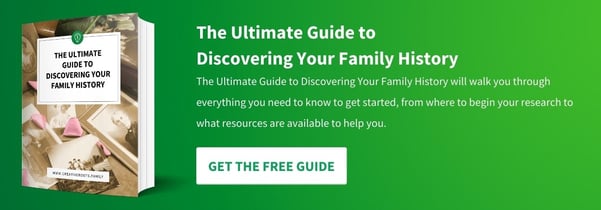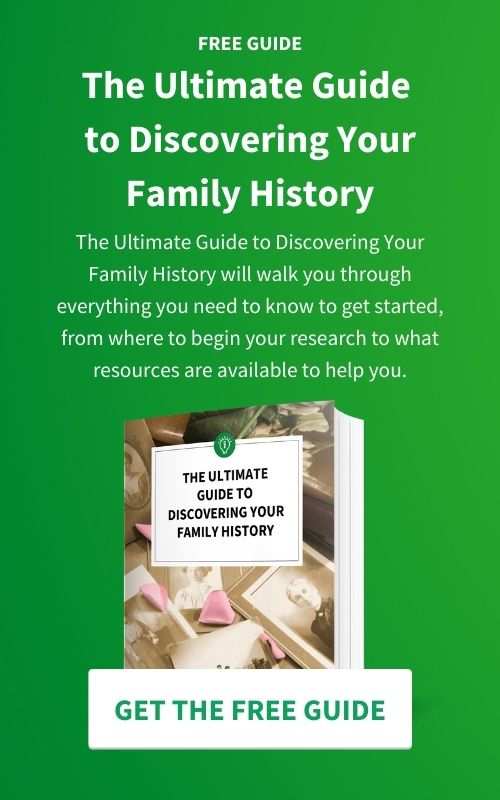30 Genealogical Research Tips from the Pros
When it comes to researching your family tree, there are things you can do to make the process go more smoothly. With a little planning and basic knowledge, you can make genealogical research a breeze. In this article, we will be discussing tips for conducting genealogical research. These tips will help you start your search, keep organized, conduct effective research, use technology to your advantage and preserve your research. By following these tips, you will be well on your way to uncovering your family's history.
Tips for Starting Your Genealogy Research
Genealogy research can be a daunting task, but it doesn't have to be. With a little bit of know-how and some helpful tips, you can be on your way to uncovering your family's past in no time. These tips will get you on your way to discovering more about yourself and your family history.
1. Start With Yourself: Gather information about your own life first. This will give you a good foundation to start your research.
Start with yourself! This may seem like an obvious place to start, but it is important to gather information about your own life first. This will give you a good foundation on which to build your research. Collect as much information as you can about your birth, childhood, education, work history, marriage, and children. If you have any old family photos or documents, these can be helpful clues in your genealogy quest.
2. Talk to older relatives who might be able to share stories and memories about earlier generations of your family. Even if they don’t remember specific dates or places, their anecdotes can give you a feel for what life was like for your ancestors. If possible, record these conversations so that you can refer back to them later.
3. Taking a DNA test is another great way to learn more about yourself. There are many companies that offer this service, and it can be very Revealing results. A DNA test will not only tell you where Your ancestry comes from, but it can also help Connect You with long-lost cousins and other relatives.
4. Talk To Family Members: Ask your relatives if they know anything about your family history. They may be able to give you some starting points for your research.
If you're just starting your genealogy research, a great place to start is by talking to family members. Ask your relatives if they know anything about your family history. They may be able to give you a few starting points for your research. You can also ask them about any traditions or stories that have been passed down through the generations. This can help you get a better sense of where your family came from and what their lives were like.
5. Use Online Resources: There are many online resources available to help you with your genealogy research. Try searching for your ancestors in online databases or using online research tools. You may be able to find information about your ancestors that you didn't know before. Some online resources that may be helpful include:
a) Ancestry.com - This website offers a variety of resources that can be used for genealogy research including an Ancestry Academy, which provides brief courses on various aspects of researching family history; a searchable database of over 16 billion historical records; and the ability to create a free family tree.
b) FamilySearch.org - This website is run by The Church of Jesus Christ of Latter-day Saints and is one of the largest free genealogy websites available. It offers access to millions of historical records, as well as tips and advice from experienced researchers.
c) MyHeritage.com - MyHeritage is another large website with billions of historical records that can be searched by name, date, place, or keyword. In addition to its extensive record collections, My Heritage also offers tools for DNA testing and analysis.
6. Visit Archives: Archives can be a great place to find information about your ancestors. Try visiting your local library or historical society to see what resources they have available.
When you're researching your family history, it's important to visit archives and other repositories of historical records. This can be a great way to find information about your ancestors that you wouldn't be able to find anywhere else.
Another great resource is visiting a Family History Center operated by the Church of Latter-Day Saints. The archival records and access to help and support can be acquired by visiting one of these centers.
There are many different types of archives, so it's important to know what kind of resources each one has available. For example, local libraries or historical societies might have access to birth certificates, marriage licenses, and other public records that can help you piece together your family tree.
If you're not sure where to start, try searching online for databases of historical records that are open to the public. You may also want t check out websites like FamilySearch or Ancestry which offer subscription-based access to millions of documents from around the world."
7. Hire A Professional: If you're having trouble finding information about your ancestors, you may want to consider hiring a professional genealogist.
There are many reasons why you might want to hire a professional genealogist. If you're having trouble finding information about your ancestors, it may be worth the investment to hire someone who can help you track down those elusive records.
A professional genealogist can also help if you're stuck in a research rut and don't know where to turn next. They can provide fresh perspectives and new ideas for how to find the information you need. And, they have access to resources that most people don't - like private databases and archives - which means they can often find information that would otherwise be inaccessible.
If you think hiring a professional genealogist might be right for your situation, there are a few things to keep in mind when making your decision: first, make sure you choose someone who is reputable and has experience with researching families from your area; second, get an estimate of what the project will cost before moving forward; and third, understand that even with expert help, there's no guarantee that all (or any) of your questions will be answered. But if finding out more about your family history is important to you, hiring a professional may give you the best chance at success.
There are several resources available to help you with your genealogy research, so don't feel like you have to go it alone. There are plenty of books, websites, and even software programs that can help you organize your data and find new leads. And if you get stuck, there are always experts you can turn to for help.
Tips for Organizing Your Genealogical Research
Are you feeling overwhelmed by your genealogical research? If you are, you are not alone. Many people who are new to researching their family history can feel lost in the sea of information that is out there. But there is hope! There are ways to organize your research so that you can make sense of it all. By the end of this post, you will have some tools that you can use to get your research organized and under control.
1. Find a Filing System That Works for You: There is no one-size-fits-all solution when it comes to organizing your genealogical research. You have to find a filing system that works for you and your unique circumstances. Here are a few tips to get you started:
a) First, think about how you access your files. Do you need them to be digital or paper? If digital, do you want them on your computer or in the cloud? Once you've decided which format works best for you, start thinking about how they'll be organized.
b) The most important thing is to create a system that makes sense to YOU. Use whatever logic and labelling system will help YOU find what YOU need quickly and easily. Whether it's by surname, location, date range, or some other criteria - make sure it works for YOU!
c) Don't forget to back up YOUR data! No matter how well organized your files are - if they're not backed up somewhere safe (like an external hard drive or the cloud), they could all be lost in an instant if something happened to YOUR computer.
2. Keep Detailed Notes: Organizing your genealogical research can be a daunting task. But with these hacks, you'll be able to keep your research organized and make progress in no time!
Always keep detailed notes, it's important to document everything - dates, locations, names, relationships...you never know what will be helpful later on. Keeping good records from the start will save you a lot of headaches down the road.
3. Use Technology to Your Advantage: Use technology to your advantage when organizing your genealogical research. Utilize online resources and software to help you keep track of your findings, create visual aids, and share information with other researchers. You can also use mobile apps to access data on the go. Stay organized and efficient by using technology in your genealogical work!
Take advantage of the technology tools available to help manage your data. There are tons of great apps and software programs out there designed specifically for genealogy research - use them to your advantage! Some tools for your consideration could be using the online services you have with Ancestry.com, FamilySearch.org or MyHertiage.com or you can purchase software programs designed to help you keep organized.
4. Stay Organized as You Go: There are a few things you can do to hack your genealogical research and stay organized as you go. Here are some tips for you while you are on the go:
a) Create a filing system that works for you and stick to it. Whether you prefer physical folders or electronic files, make sure everything is clearly labelled and easy to find.
b) Take advantage of technology by using apps and software specifically designed for organizing family history information. These tools can help streamline your research process and make it easier to keep track of what you’ve already found (and where).
5. Don't Be Afraid to Ask for Help: There's no shame in admitting that you need help with your genealogical research. In fact, asking for help is one of the best ways to make progress on your family history. But where do you start? Here are a few tips for finding and working with helpers. Try reaching out to family members who might be able to provide information or assistance. They may be able to share stories, photos, documents, or other clues that can help you move forward. If there's someone in particular who seems interested and willing to help, ask them if they'd be available for regular.
If you're anything like me, your genealogical research can get pretty disorganized pretty quickly. There are so many different pieces of information to keep track of - names, dates, locations, relationships, etc. - and it can be tough to keep everything straight. These hacks help you get your research organized and make the most of your time.
Preparation Tips for Conducting Onsite Research
While online research is a great way to get started, it can only take you so far. Sometimes you need to go to the source to find the information you are looking for. Onsite research can be time-consuming and daunting, but it is often worth the effort.
In this section, we will be discussing tips for effective onsite genealogical research. We will cover topics such as knowing what records are available, planning your research trip, and making the most of your time at the archives.
1. Do your homework before you go: When embarking on any research project, it is always best to do your homework before you go. This is especially true when doing genealogical research. There are many resources available online to help you prepare for your trip. Some things to consider researching before you go include:
a) The local history of the area where your ancestors lived, what records are available from that time period?
b) Which archives or libraries hold those records?
c) Learn as much about your ancestors as possible so that you will know what type of information you should be looking for during your trip.
d) Review the finding aids for the records you are searching prior to visiting the library or archives.
e) Confirm with the facility what the “rules” or “procedures” are to request copies of records. Some facilities may require days to pull records and you don’t necessarily want to be making several trips to the facility.
2. Make a plan and stick to it:
When it comes to onsite genealogical research it is so easy to become overwhelmed and have your research time go sideways. Making a plan and sticking to is key. This means having a specific goal in mind for what you want to learn or find out and then creating a strategy for how you're going to go about doing that.
Part of this also includes being prepared with all the necessary tools and resources ahead of time. Doing your homework before heading into the archives will save you valuable time (and frustration) later on.
3. Be respectful and take your time: When conducting genealogical research, it is important to be respectful of the people and property you are interacting with. This includes being patient and taking your time in order to avoid damaging or disturbing any materials. It is also important to be aware of local customs and etiquette in order to show respect for those who may be assisting you with your research.
4. Be flexible and be prepared to change your plans: We all know that feeling of finally finding the perfect research plan, complete with a customized list of resources and a detailed schedule to follow. But what happens when you get on-site and find that the records you need aren't available or are completely different than what you expected? Being flexible and prepared to change your plans is an important part of effective genealogical research.
Here are some tips for how to handle changes while still making progress on your family history:
a) Have alternate record sources in mind before you even start researching. This way, if something isn't available, you have other options to turn to.
b) Flexibility also applies to your timeline; be willing to adjust as needed based on what information is actually available.
c) If possible, talk to staff at the archives or library ahead of time so they can give you more specific advice about their holdings.
d) Remember that not everything will go according to plan but don't despair! With a little flexibility, you'll be able to make progress in spite of any setbacks.
5. Don't forget to enjoy yourself: Don't forget to enjoy yourself! This may seem like an obvious piece of advice, but it's one that is often overlooked. When you're caught up in the research process, it's easy to forget why you're doing all this work in the first place. Remembering to have fun will help keep you motivated and excited about your project.
6. Stay focused: It is so easy to become distracted when you find a record you are not looking for. You easily find yourself in the wrong rabbit hole. Here are a few ways to make sure you stay focused on enjoying yourself while researching in general:
a) Set realistic goals for what you hope to accomplish each day or week. If you only allow yourself a limited amount of time for research, then it won't feel like such a chore.
b) Take breaks when needed and don't be afraid to walk away from your project if things start feeling too overwhelming. It's important to maintain perspective and not put too much pressure on yourself.
c) Share your findings with others! Excavating family history can be lonely work at times, so reach out to friends and relatives who might be interested in hearing what you've discovered.
7. Tools to take with you: Whenever I am doing onsite research I take with me a binder containing my research plan and various genealogy forms to record information I cannot remove from the site. If you are able to save files, I highly recommend taking a thumb drive with you to store the records. Don’t forget to cite your findings. Some facilities will allow you to photograph the information so either take with you a digital camera or use your cellphone camera.
Tips to Ensure Successful Research
Have you ever wondered how to find information about your ancestors? Many people think that conducting genealogical research is a daunting task, but it doesn't have to be! With a little bit of know-how and some helpful tips, you can be on your way to uncovering your family history in no time.
1. Define Your Research Goals.
Before beginning your genealogical research, it is important to take some time to define your goals. What do you hope to accomplish? Are you looking for information on a specific ancestor, or are you trying to fill in gaps in your family tree? By taking the time upfront to establish what you want to learn, you will save yourself time and frustration later on.
In addition to defining your overall goal, it can be helpful to break down that goal into smaller sub-goals. For example, if you are researching a specific ancestor, what do you know about them already? What questions do you still have? Once again, being clear about what exactly it is you are hoping to find out will help focus your efforts and make the research process more efficient.
Finally, don’t forget that part of the fun of genealogy is simply exploring all the different branches of your family tree. As such, allow yourself some flexibility in terms of changing goals as new leads and avenues present themselves during your research journey!
2. Collect And Organize Your Family Information.
There are a few things you can do to get started with your genealogical research.
Start by collecting and organizing any information you already have about your family. This may include birth certificates, death certificates, marriage licenses, obituaries, census records, family Bibles, etc. Once you have gathered all of this information together, it will be easier to begin filling in the gaps and tracing your lineage back further.
a) Utilize resources like ancestry databases and online forums dedicated to Family History Research. These websites can be incredibly helpful in connecting with other researchers who may have access to information or clues that you don’t yet have. Additionally, many of these sites offer free trial periods so that you can explore what they have to offer before committing financially.
b) Patience is key when doing any sort of historical research - especially when it comes to uncovering new details about long-ago ancestors! The more organized and methodical you are in your approach, the more likely it is that eventually succeed.
3. Effective Use of Online Resources
There are a wealth of online resources available to help with your genealogical research. Here are some tips for using them effectively:
a) Start with what you know. When searching online, it’s always best to start with the information you already have. This will help focus your search and make it more likely that you’ll find what you’re looking for.
b) Use multiple resources. Don’t rely on just one website or database when doing your research – use as many different sources as possible to get the most comprehensive picture of your family history.
c) Be prepared to pay for access. Many sites offer free trials or limited free access, but eventually, you may need to pay a subscription fee in order to view all the records they hold.
When conducting onsite genealogical research it is important to be organized and keep track of the resources you use. I suggest using a research log to document everything you find, whether it is online or offline. It is also helpful to use a variety of resources, including both online and offline sources. Using a log will also save you time when searching so you don’t research the same information many times, you will have the log to refer to.
Using Technology for Genealogical Research
Are you interested in using technology to further your genealogical research? If so, you're not alone. Many people are using technology to help them find information about their ancestors.
There are a number of ways you can use technology to your advantage when doing genealogical research. In this blog post, we will be discussing some of the best ways to use technology to help you in your research.
1. Use Social Media.
Most people use social media without giving it a second thought. However, for genealogical research, social media can be an invaluable tool. Here are some tips on how to make the most of social media in your quest for ancestors:
a) Know which platforms to use – Not all platforms are created equal when it comes to genealogy research. Facebook and Twitter tend to be more useful for connecting with living relatives, while Ancestry.com and FindMyPast are better suited for finding records and information about deceased ancestors.
b) Use search engines – Most social media platforms have built-in search engines that can be used to find specific information or individuals. If you’re not sure where to start, try searching for terms like “genealogy” or “family history” along with the name of the platform you’re using (e..g., Facebook). You may also want to try Boolean searches by including keywords such as “AND” or “OR” in your query.
c) Don't forget about privacy settings – When researching sensitive topics like family history, it's important to remember that not everyone is comfortable sharing personal information online. Be respectful of other people's privacy settings and only share what they're comfortable with made public.
2. Use Online Databases.
There are many online databases that can be useful for genealogical research. The 3 most common databases are described briefly below:
Ancestry.com is a subscription-based website that offers access to billions of historical records, including census data, birth/death records, marriage licenses, and more.
FamilySearch is a free website maintained by the Church of Jesus Christ of Latter-day Saints. It offers access to millions of historical records from around the world - including censuses, Birth Marriage Death (BMD) indexes, and passenger lists. MyHeritage also has a large collection of digitized historical documents available for searching. However, “free" sites like FamilySearch may require you to create an account login in order to protect user information."
Check out your local library or Family History center. They both offer access to Ancestry.com and many other online search engines.
3. Use Other Online Tools.
There are a wealth of online tools available to help with genealogical research. Many websites offer free databases that can be searched for information on ancestors. Websites such as Ancestry.com and FamilySearch.org are two of the most popular destinations for online genealogy research.
Another helpful tool is Google Earth, which can be used to find locations where ancestors lived, or events took place. Historical newspapers are also available online and can be searched for mentions of ancestors or relatives.
Online forums and message boards dedicated to genealogy can also be useful, as they provide a way to connect with others who may be researching the same family lines. By networking with other researchers, it may be possible to learn new information or get ideas about additional resources that could prove helpful in the search for ancestral roots.
4. Use Technology to Your Advantage.
There are a number of ways that technology can help you with your genealogical research. Primarily, it’s important to make use of online resources such as databases and search engines. These days, there is an increasing amount of information available online, so it’s worth taking the time to explore what’s out there.
In addition to making use of online resources, another way that technology can help you in your research is by organizing and storing your data electronically. This can be done using software programs or even very simple spreadsheet applications like Microsoft Excel. By keeping track of your data electronically, you will be able to access it more easily and share it with other researchers more readily.
By following these tips, you can make the most out of the technology tools available to you and make your genealogical research more efficient.
Tips for Preserving Genealogical Records
If you are enthusiastic about your family history, you want to do everything you can to preserve your genealogical records. But what is the best way to do this? There are a few things you can do to make sure your records are preserved for future generations.
In this blog post, we will be discussing tips for preserving your genealogical records. We will be talking about what records you should keep, how to store them, and how to digitize them. We hope you find this information helpful in preserving your family history!
1. Keep Records in A Cool, Dry Place: One of the most important tips for preserving genealogical records is to keep them in a cool, dry place. Extreme temperature changes and high humidity can damage paper documents, so it’s best to store them in a stable environment. If you don’t have access to climate-controlled storage, consider investing in archival-quality storage materials like acid-free boxes and folders.
2. Handle Records with Care: Another tip for preserving genealogical records is to handle them with care. Avoid touching or handling documents directly whenever possible, as the oils from your skin can cause deterioration over time. When you do need to handle documents, use clean cotton gloves or hold them by the edges.
Be sure to make digital copies of all your genealogical records before storing them away – just in case something happens to the originals. You can scan paper documents or take photographs of three-dimensional objects using a smartphone or digital camera set at its highest resolution setting. Industry standard suggests scanning at a minimum of 600 dpi.
3. Use Archival Materials/Acid-Free Storage Containers.
Acid-free storage containers are important for preserving genealogical records. Here are three tips for using them:
a) Use archival quality, acid-free boxes or folders to store papers and documents. These can be purchased at office supply stores or online. Be sure to label the container with the contents and date so you can easily find what you need later on.
b) If you're storing photographs, use photo albums that are made of acid-free materials. You can also purchase special photo sleeves that are safe for long-term storage. Again, labelling is key! Make sure to write down who is in each picture, when it was taken, and any other pertinent information such as where the photograph was taken.
c) Always handle your stored documents and photos carefully; avoid touching them with your bare hands as much as possible since skin oils can damage these delicate items over time.
4. Scan Or Photograph Records Before Storing Them.
Scanning or photographing records before storing them is a great way to keep them organized and accessible. Here are some tips for doing so:
a) Make sure the scanner or camera you use is of high quality, as this will ensure that your images are clear and accurate.
b) When scanning documents, be sure to scan at a resolution of 300 dpi or higher. This will help prevent the text from becoming fuzzy when enlarged.
c) For photographs, it's best to scan at a resolution of 600 dpi or higher. This will give you more flexibility if you ever need to print out the image.
Once you have scanned or photographed your records, be sure to store the files in a safe place where they won't get lost or damaged. It's important to take steps to preserve your records so that they can be enjoyed by future generations. With proper care, your records will be around for years to come.
There are many different ways to conduct genealogical research, but these tips will help you get started on the right foot. By following these tips, you can be sure that you are conducting your research in the most efficient and effective way possible. Conducting genealogical research can be a very rewarding experience. It can help you learn more about your family history and connect with your ancestors. Enhance your research skills by exploring these related blogs.

Article by Carol Walsh
Carol Walsh is the CEO of Creative Roots, a professional genealogy company. She has a passion for preserving family history and storytelling. Carol's research methodology centers around fact-finding and publishing in a format that readers can use to preserve the stories. Her ultimate goal is to help families connect with their past and each other.






